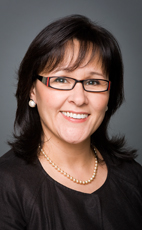Mr. Speaker, since 1998, the Aboriginal Healing Foundation, AHF, has received $515 million to provide community-based healing initiatives to address the experiences of former students of Indian residential schools and their families and communities.This investment includes the provision of $125 million in 2007 as part of the Indian residential schools settlement agreement, the IRSSA. In 2010-11, $46.8 million was allocated for the Indian residential schools resolution health supports program, the IRS-RHSP.
In addition, in budget 2010 the Government of Canada announced an investment of $199 million over two years in new funding to Health Canada, Aboriginal Affairs and Northern Development Canada, and Service Canada to meet the increased costs associated with implementing the IRSSA. Going further, economic action plan 2012 commits to continue work with aboriginal communities and organizations, provinces and territories to improve the mental health and well-being of aboriginal peoples in Canada.
In 2011-12, Health Canada provided approximately $245 million for a range of on-reserve mental health and addiction services, from mental health promotion to addictions to suicide prevention to counselling and other crisis response services, treatment services and after-care services.
Health Canada works with its regional and national partners to ensure that all former Indian residential school students and their families are aware of the services available to them via the Indian residential schools resolution health support program. Health Canada has reached out to all former Aboriginal Healing Foundation projects to assist them in referring their clients to Health Canada’s existing services. Information has also been distributed through direct mailings to community health centres, nursing stations and treatment centres, and has been sent to former students participating in an adjudication hearing, participating in a truth and reconciliation event, or receiving a common experience payment.
In order to ensure access to services for eligible former students and their families who had been previously served by Aboriginal Healing Foundation projects, Health Canada has entered into 26 new agreements with aboriginal service provider organizations and has enhanced funding to 22 existing service providers. Of the 26 new contribution agreements entered into by Health Canada to deliver resolution health support program services, 20 are with aboriginal organizations that were previously funded by the Aboriginal Healing Foundation. If services are not available in an individual’s home community, Health Canada will arrange for transportation to a professional counsellor or cultural support provider, or for a resolution health support worker to visit the community.
Health Canada does not have data available on the number of clients served. Rather, data is collected on the number of funded service interactions and counseling sessions and is available at the national level only.
In 2010-2011, the most current year with complete data, IRS-RHSP delivered approximately 170,000 emotional and cultural support service interactions to former IRS students and their families and approximately 31,000 professional mental health counselling sessions.
In 2009-2010, the IRS-RHSP delivered approximately 80,000 emotional and cultural support service interactions to former IRS students and their families and approximately 27,000 professional mental health counselling sessions.

